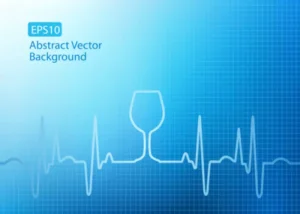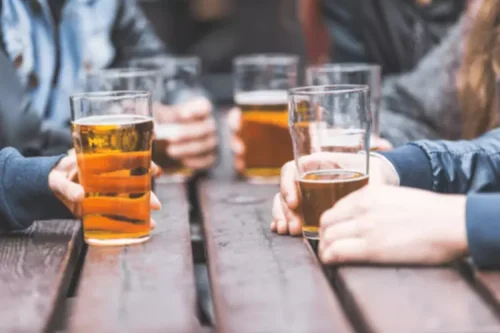
The journey to sobriety may be challenging, but the rewards are immeasurable. As you prepare your plan to quit drinking, make a list of the barriers that might be standing in your way and brainstorm ways to deal with these problems. Potential solutions might include looking for low-cost treatment options, joining a support group, and talking to a mental health professional. There are many benefits of giving up alcohol, including better physical and mental health, better sleep, lower blood pressure, as well as a lower risk of heart disease, stroke and certain cancers.
Is Alcohol A Problem? Online Tool Helps Assess Risk And Find Help
If you’re ready to make a positive change, here’s what you may want to know about the recovery process. If you experience symptoms of DT, such as confusion, disorientation, hallucinations, or delusions, seek medical attention immediately. If you tend to drink too much whenever there is any alcohol in the house, get rid of it altogether, the NIAAA recommends. Food can absorb the alcohol in beverages, so eating before or even while you drink can dampen the effect and may make you want to drink less, says Crews. You might reach for alcohol when you’re really just thirsty, says Crews.
- You can write down the limits that you set for yourself daily or weekly, as well as the number of drinks that you actually consume.
- Whether you want to stop drinking completely or keep a close eye on your alcohol consumption, there are a wealth of alcohol tracking apps which allow you to monitor your units, calories and spending.
- Join a gym, learn a new skill, or find sober social groups you can enjoy.
How does alcohol affect my blood pressure?
- They see the pain and struggles and reality of addiction that you may feel others can’t begin to comprehend.
- Keep trying until you find the activities that resonate with your passions and ultimate wellness goals.
- Before you stop drinking, talk to your GP or local health professional if you think that you will find it hard to stop drinking or if you are worried that you may be at risk of alcohol dependence.
- Inpatient and outpatient treatment facilities are another effective place to surround yourself with people who will walk you through detox and recovery with no judgment.
According to the National Institute on Alcohol Abuse and Alcoholism (NIAAA), recovery is a process that involves remission from AUD and quitting heavy drinking for good. If you think you may have a drinking problem, you’re definitely not alone. In 2021, researchers estimated nearly 30 million people ages 12 years and older in the United States had alcohol use disorder (AUD). In addition to therapy, support groups, and self-help options, you should consider some of the medications that are available which may improve your chances of quitting alcohol successfully. Changing unhealthy behaviors such as smoking, overeating, or drinking too much can take a lot of effort, and you may not succeed with the first try. If you think you might have alcohol use disorder (AUD) and decide to stop drinking completely, don’t go it alone.

Tell family members and friends you want to get healthier.
But if you’re living with alcohol use disorder, drinking is more than a habit. People with alcohol use disorder can’t stop drinking even when it causes problems, like emotional distress or physical harm to themselves or others. You may not need to completely reinvent your life to quit drinking, but making a few changes in your surroundings to help avoid alcohol triggers can make a big difference.

To hold your resolve, it should be bigger and more important to you than any momentary temptation to drink. Alcohol is addictive and breaking free of that addiction (even if you’re not a heavy drinker) can be tough, so it is important to be very clear about why you are doing this. If you’re still feeling groggy after a boozy weekend you’re probably wondering what kind of lasting damage alcohol is having on your body and brain. An urge to drink can be set off by external triggers in the environment and internal ones within yourself. “The best strategy we’ve found for reducing alcohol is getting people to count their drinks,” Dr Jongenelis says. Plan to arm yourself with some one-liners that you can throw out to your friends or colleagues as to why you’re not drinking, says psychologist Michelle Jongenelis from Curtin University.
Support for Me and My Family

Many people who reduce their alcohol intake notice benefits, which can include those below. It’s recommended to drink no more than 14 units of alcohol a week, spread across 3 days or more. That’s around 6 medium (175ml) glasses of wine, or 6 pints of 4% beer. Being involved in rounds makes it easy to end up drinking more than you meant.
This withdrawal can be physical, mental, or psychological; your level https://ecosoberhouse.com/ of alcohol dependence will determine the type and severity of your withdrawal symptoms. Fortunately, there aren’t any alcohol withdrawal symptoms that are life-threatening or even need medical supervision. The relationship between alcohol abuse and mental health disorders is complex and bidirectional. Many individuals with alcohol use disorder also struggle with conditions such as depression, anxiety, bipolar disorder, or post-traumatic stress disorder (PTSD). This co-occurrence is known as dual diagnosis or comorbidity.
Developing healthy coping strategies is crucial for managing stress, emotions, and cravings without turning to alcohol. These strategies provide alternatives to drinking and help build resilience. This practice can provide concrete evidence of your drinking patterns and their impact on your life. It’s not about judgment, but about gaining clarity on your relationship tips to quit drinking with alcohol. Many people — including many addiction experts — believe that the only way to handle a drinking problem is to quit altogether. Indeed, abstinence-based programs such as Alcoholics Anonymous (AA) have helped countless people manage their addiction and live healthier lives.
- In a large-scale study of alcohol treatment methods, researchers found that a combination of medical management, medication, and cognitive-behavioral interventions was most effective.
- If you answer “yes” to six or more questions, your symptoms align with severe AUD.
- Changing unhealthy behaviors such as smoking, overeating, or drinking too much can take a lot of effort, and you may not succeed with the first try.
- Her top tip for party lovers is to look out for alcohol-free parties and raves such as House of Happiness () and Morning Gloryville () for drug-free sober rave events.
Try to avoid them if you can, and do not feel like you have to say yes to a drink just because someone else is buying. You do not necessarily need to go teetotal to feel the benefits of drinking less. One simple way to cut down is to have at least a few drink-free days every week, so choose yours and get practical support to stick with it. You need to find new hobbies to take the place of things you used to do while drinking. You need to find new activities and people to socialize with if all of your previous social activities revolve around boredom.
Popularity: 1% [?]
